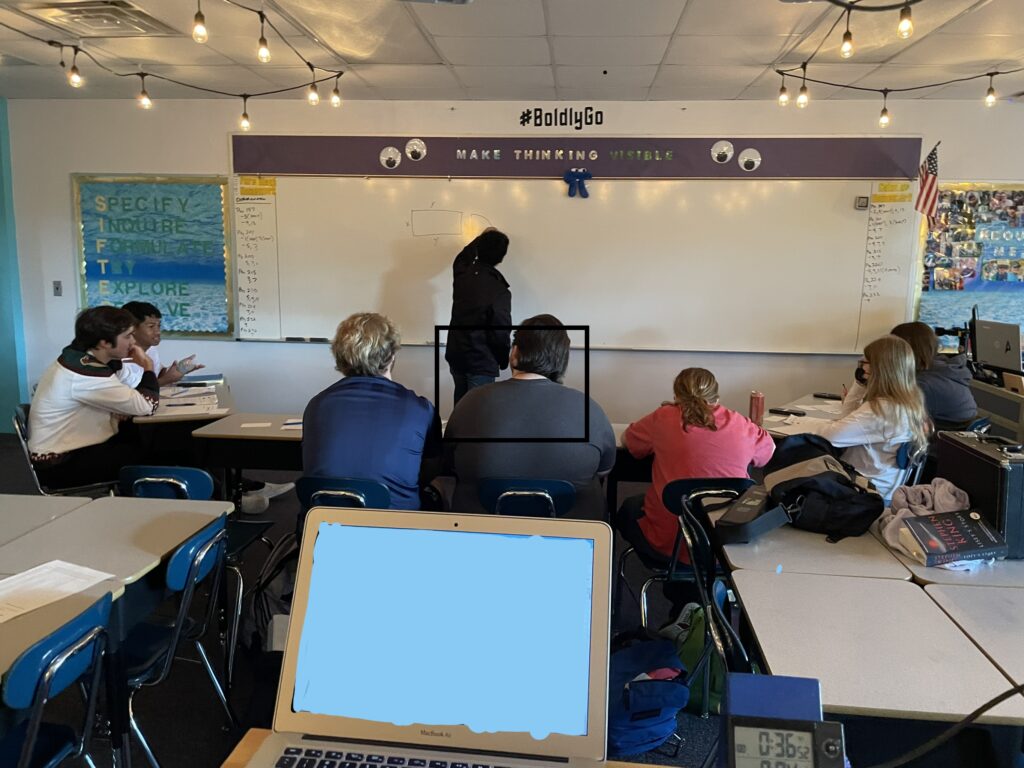Happy Teacher Appreciation Week!

At Impact Florida, we have been working with a fantastic group of teachers from across the state for our Solving with Students Cadre, specifically designed to improve student learning in math and aid teachers in professional learning by utilizing student feedback. We wanted to take this week to honor some of our dedicated and passionate educators by introducing you to some of our cadre participants.
Ian Boze teaches at Q.I. Roberts Jr.-Sr. High School in Putnam County and serves as the Math department chair. He’s been teaching for nearly four years and is instructing more than 90 7th through 12th graders this year in the subjects of Pre-Calculus, Calculus, and AICE Mathematics Mechanics. Ian entered the Learning Cadre in order to improve his teaching practice, participate in a learning community with other math educators, and help position Florida math instruction as a leader in the nation. As part of the cadre, Ian is using a free, research-based tool called Elevate, designed by PERTS, to survey his students, learn best practices to address student feedback, and then incorporate new strategies in the classroom, in alignment with the Five Conditions that Support Great Teaching.
Tiana Pitts, a teacher coach from the New Teacher Center who has been working with Ian, had this to say about him: “Ian is an amazing teacher who is very thoughtful about what he does to impact students. He’s very reflective on his data and focuses on actions that will serve his students better. It’s been a privilege to walk alongside him as he reflects and grows in his practice.”
Ian shared his thoughts on his cadre experience with us in the following Q&A:
What interested you about this cadre, and the idea of getting student feedback?
The pandemic disrupted my habit of regularly giving students a chance to give me feedback about my class and my teaching. So this cadre had the potential to get me back into the habit of student feedback, while also providing the types of questioning I needed to get effective feedback that would truly push my skills.
What did the first round of survey results say, how did you feel about them, and what did you learn?
My first-round data confirmed that I have established relationships with my students, and their written comments provided positive feedback. But the data also showed that over half of my students did not see the classroom work as “meaningful” and about half also did not feel that they had a say in the classroom. As with any feedback, it can sometimes be a hard pill to swallow, and it was difficult to accept at first. Eventually, however, I recognized that the feedback was integral to my growth as a teacher.
I learned that I need to be more purposeful with my work and make sure students understand the “meaning” of the activities we are doing. In a similar vein, I’m learning to provide them opportunities to decide how and what we learn, in addition to allowing them to provide feedback. Student voice and meaningful work are now central to my thinking about my practice, giving me specific talking points to use with my instructional coaches at my school to help me improve.
How did you share your results with your students? Why did you think it was important to engage them in what you were working on?
Just like adults, students want to feel like what they are doing matters and that they have some control over what is happening in their lives. Involving students garners better support because if you have a positive rapport with them and if they understand why they are taking the survey, they also understand that you are trying to improve as a teacher.
I actually shared my initial survey results with my students. Some of them were upset by the results because they felt that certain comments about me were unfair or mean. What I have found the most interesting is what they share after we look at the data together. I asked them what constitutes “meaningful work” and what it looks like for a teacher to care about their lives outside of class. Their thoughts about these abstract ideas have given me a more concrete sense of what they actually mean.
Bringing students along with you on the journey lets them know that you’re not perfect and that you’re willing to grow and change, just as you’re asking them to grow and change. In my opinion, relationships are stronger when students see their teacher as human and someone who is also learning, instead of a knower of all things.
What are some strategies you’re using to improve the classroom experience?
I’ve made it a point to gather additional student feedback for clarification along the way, which has helped improve the overall experience. Specifically, I’ve implemented more student choice in my assignments and have created ways for students to explore math in the real world – hoping this will help them find meaning in what they’re learning. I’ve also added different activities where students are actually doing more than simply receiving information from me to actually processing the information themselves – moving beyond lectures and copying notes.

Why do you think student experience matters to math achievement?
In any subject, students want to learn, they want to grow, and they want to be successful. No student wants to feel like they cannot achieve, and that all starts with the student experience. You can be the biggest expert in the field and have the best teaching strategies, but if the student experience is not prioritized, if they don’t feel heard, if they don’t feel that the work is valuable – then they will not learn. The classroom needs to have an environment such that when you set the bar high, everyone can reach for it – and your role is to be there to support them. No kid wants to feel like you’ve given up on them before they’ve even tried.
Thinking about past opportunities for professional learning, what has made this different?
This experience has been different for a few reasons. First, instead of a specific content focus, this was truly about how to improve the environment of the classroom and my teaching practices. Second, training and growth was ongoing and took place over the course of an entire semester – not for one day or even just one afternoon. But perhaps the most important difference for me was the community. It’s always fun to do training with people you know like coworkers and friends, but I loved the unique chance to meet other teachers from different places who are also trying to perfect their craft and to be able swap stories and problem solve together. Sometimes, just knowing that I was not alone was reassuring.
How has the coaching helped you reflect on your results and take action?
Digesting data takes time, and the coaching has given me that. Not only do I have a dedicated hour where I can confront and analyze the data, but I also have someone who can help me contextualize the results. I’ve been able to brainstorm and talk about my teaching practice in a professional, academic, and productive way that I haven’t before. After my experience, I look forward to sharing the importance of feedback, student voice, and meaningful work with other educators in my school and community.
